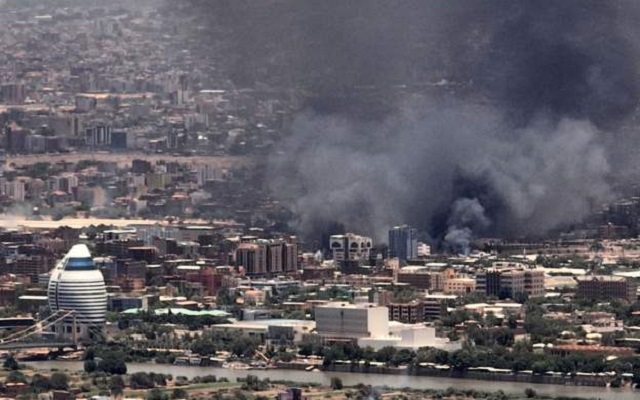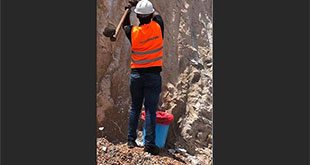
 COMMENT | HASSAN SHIRE | On 31 May 2023, talks aimed at resolving the crisis in Sudan – now in its tenth week, broke down in Jedah, Saudi Arabia, after the government side suspended its participation, accusing its rival – the paramilitary Rapid Support Forces (RSF) of violating an earlier agreed-upon ceasefire.
COMMENT | HASSAN SHIRE | On 31 May 2023, talks aimed at resolving the crisis in Sudan – now in its tenth week, broke down in Jedah, Saudi Arabia, after the government side suspended its participation, accusing its rival – the paramilitary Rapid Support Forces (RSF) of violating an earlier agreed-upon ceasefire.
Every day that the conflict in Sudan endures is a nightmare for the people of Sudan: As the two militaries jostle for supremacy, turning markets and residential suburbs into theatres of war, millions remain trapped in the crossfire, innocent civilians are being killed in droves, and those too terrorized to step out of their apartments are running short on essential supplies like food, water and medicines, exacerbating a humanitarian catastrophe.
Already, more than 1,800 people have been killed according to the Armed Conflict Location and Event Data Project, and at least 1.6 million more have been displaced, according to the United Nations Office for Cordination of Humanitarian Efforts (OCHA). The OCHA has also noted that of those that remain in Sudan, at least 25million people – more than half the population, require urgent aid and protection.
Efforts to end the conflict, so far mainly led by the US and Saudi Arabia, are yet to yield much: Ceasefires have routinely been violated, hindering the delivery of much needed humanitarian assistance, and it remains to be seen whether the first round of sanctions announced by the US on 1 June, targeting firms belonging to the conflict’s two leading protagonists – Generals Burhan and Dagalo will be sufficient to compel them to negotiate peace.
Globally, however, there has been little unified international action to end the Sudan conflict. Although the UN Human Rights Council’s decision to convene a special session on 11 May that resolved to condemn human rights violations accompanying the conflict was a welcome signal of global consensus on the matter, it fell short of putting in place an investigative and accountability mechanism that would investigate, document, and preserve evidence of human rights violations with a view of holding those responsible accountable.
The lack of clear and unequivocal incentives for accountability has for years encouraged a culture of impunity in Sudan, of which the current crisis is a direct consequence. Under Sudan’s deposed dictator Omar Bashir, Sudan socially, politically, and economically marginalized its non-Arab ethnic population in the south and west of the country, provoking rebellions in both regions that led to mass deaths, displacements, and the eventual breakaway of South Sudan into an independent state.
In Darfur, the Bashir dictatorship allied with a notorious militia known as the Janjaweed, which it equipped, provided funding and immunity from prosecution, enabling it to execute a systematic genocide against Darfur’s indigenous tribes, estimated to have killed between 100,000 – 400,000 people and displaced another 3million. Although the International Criminal Court (ICC) eventually issued an arrest warrant for Bashir and his henchmen for their war crimes and genocide in Darfur, Bashir managed to evade arrest, in part thanks to an African-Union led campaign to discredit the ICC, ensuring that he would evade justice until his eventual overthrow in 2019.
Before his overthrow however, and in appreciation of the Janjaweed’s scorched-earth effectiveness in suppressing rebellion in Darfur, Bashir regularized the Janjaweed militia which had in 2013 rebranded as the RSF, and gave it the force of law as an independent security force in Sudan. He would proceed to deploy it to crush other rebellions in South Kordofan and Blue Nile, leaving a trail of human rights abuses including rape and sexual violence in its wake.
It is this same RSF that is the other party to Sudan’s current crisis. In 2019, unable to suppress sustained citizen protests against high cost of living in Sudan, it colluded with Sudan’s regular army – the Sudan Armed Forces (SAF) to overthrow Bashir, remaining the real-power behind the fragile civilian transitional government which they (RSF and SAF) again allied to overthrow in a coup less than two years later, in October 2021. Since 2019, the two militaries have been responsible for brutally suppressing citizen demonstrations, killing and arresting hundreds without trial, including a massacre of over 102 peaceful protesters on 3 June 2019.
Despite this well documented history of impunity and grave human rights atrocities however, none of RSF or any of Sudan’s military leaders for that matter has to date been held accountable. Instead, from 2017, the US began to systematically ease sanctions against Khartoum, lifting a decades-long economic embargo against the country and removing it from its list of state-sponsors of terror, despite no structural reform in Khartoum’s human rights record.
Emboldened and readmitted into the global financial system, Sudan’s military leaders made the most of it. RSF expanded its business empire, from mining to security contracting, hiring out its military personnel to fight wars in Yemen and wherever else opportunity showed itself. It raked in billions of dollars as a result, which it used to expand and further arm itself into the indispensable nearly 100,000 militia it is today.
Any intervention to sustainably end the crisis in Sudan must therefore be informed by this history. It must center accountability, prioritize delivering justice for the millions of victims, and spell out clear sanctions that will act as a deterrence against a repeat of Sudan’s cycles of impunity and violence.
The African Union through its Peace and Security Council and regional blocs like the Inter-Governmental Authority on Development (IGAD) must particularly play a central role in helping end the current conflict by sending a clear and unequivocal message to Sudan’s warring military leaders that their continued belligerence and disregard for the Sudan people will have a price. With a membership of over 50 states the AU has immense diplomatic resources it can use to bear upon the warring factions in Sudan. It is an opportunity for the continental body to translate the mantra; African Solutions to African Problems from a mere slogan into lived reality for the suffering people of Sudan.
*****
The writer is the Executive Director at DefendDefenders, which works to enhance the safety and capacity of Human Rights Defenders in the East and Horn of Africa
 The Independent Uganda: You get the Truth we Pay the Price
The Independent Uganda: You get the Truth we Pay the Price



